BLACK PANTHER: WAKANDA FOREVER
I think it is fair to say that out of all the Marvel Cinematic Universe films, Phase Four, the sequel to Black Panther is the most anticipated, or at least, the most hyped. After Black Panther star Chadwick Boseman's sudden and unexpected death, there was concern over how to proceed with the franchise. Black Panther: Wakanda Forever is adequate, but longer and unwieldly in its execution.
The sudden death of King T'Challa of Wakanda, the Black Panther, has not only thrown Wakandans and the world into turmoil, but left the Royal Family adrift. Princess Shuri (Leticia Wright) still grieves a year after T'Challa's death, haunted by her inability to save him. Queen Ramonda (Angela Bassett) urges her to start moving forward, but she has problems of her own.
The other nations want Wakanda's vibranium supply, and they will go to any lengths to get it short of war. An attack on an American ship that has found vibranium on the ocean floor has been attacked. It is not the Wakandans who have done this. Instead, it is a new hereto unknown people: the Talokan. Their king, a half-human half-merman known as Namor (Tenoch Huerta) infiltrates Wakanda and gives an ultimatum: hand over "the Scientist" who made the vibranium-detecting device or face war.
That "scientist" turns out to be sassy MIT student Riri Williams (Dominique Thorne). She is pleased to receive Wakandan royalty, but not pleased when Okoye (Dania Gurira) threatens to take her to Wakanda by force. With some help from "colonizer" Everett Ross (Martin Freeman) they avoid capture, but Namor takes "the scientist" and Shuri to his underwater kingdom of Talokan, where we learn his backstory.
The rescue by self-exiled Wakandan Nakia (Lupita Nyong'o) only serves to antagonize Namor more. That leads to an attack on Wakanda, where not all survive. Ultimately though, a new Black Panther arises, one that forces peace and allows for grief. It also allows for a new, hereto unknown Prince of Wakanda to be found.
I point out that Black Panther: Wakanda Forever is close to three hours, two hours and forty-one minutes to be exact. That makes it close to half-an-hour longer than Black Panther as well as the second-longest Marvel Cinematic Universe film (after the three-hour, two-minute Avengers: Endgame). It is also longer than Dune: Part 1, albeit by only six minutes. As such, Wakanda Forever seems to live up to that name. I would not say it is overindulgent, merely bloated.
Director and cowriter Ryan Coogler (writing with Joe Robert Cole) made some very curious decisions in Wakanda Forever. For example, there is an early scene where we cut back and forth between a French raid on a ship carrying vibranium and Queen Ramonda addressing the United Nations in Geneva about that exact raid. I wonder why we could not cut Ramonda's address, focus on the raid and culminate with the captured mercenaries being brought forward.
Other moments were cringe-inducing. Hearing Dora Milaje General Okoye refer to the FBI as "the popo" might have been funny (it was to the audience I saw Wakanda Forever with). However, I do not think Okoye would even be aware of the term, let alone use it. This break from character took perhaps the most unintentionally silliest turn when K'uk'ulkan/Namor was showing Shuri around his underwater kingdom.
First, this rather serious, slightly pompous and menacing Mesoamerican warrior king tells Shuri the various dangers of trying to enter Talokan, until he breaks out into something close to a smile and says cheerily, "Or we can get you a suit!". This, to my memory, is the only time Namor comes close to showing any humor. That already is strange enough. As Shuri floats along to see the wonders of Talokan in her underwater suit, the end result has her looking like SpongeBob SquarePants' Sandy Cheeks!
As a side note, while Namor makes a big thing out of pronouncing his name as "Nah-MOOR", no one else seems to have gotten the memo. If memory serves correct, "Nah-MOOR" is used only once. Everyone else pronounces it "NAY-moor". I'm of Mexican descent, and I would say "NAY-moor". To be fair, I heard "K'uk'ulkan" and my mind drifted to the Mexican bogeyman "El Cucuy", but I digress.
Jokes aside, Wakanda Forever has serious problems due specifically to the script. It is meandering and filled with plot points and characters that add nothing to whatever it is trying to say. The Namor origin story could have been cut down or cut altogether, for it includes how the Talokan people came to be, Namor's own origin and the origin of his name. Same with the extended Talokan attack on Shuri, Okoye and Riri in Boston.
It is curious that what is meant as a major action piece felt dull. It is even more curious that anyone would bother saving Riri given the two major problems with her. There is how inconsequential she was to Wakanda Forever and what an unlikeable character she was. In the former, Riri disappears for long stretches of Wakanda Forever. She is essentially the Maguffin, what most of the plot centers around but who has no real impact in the story itself. She was superfluous, there only to tie Riri into the MCU for the upcoming Ironheart Disney+ series.
As another side note, I did wonder why El Cucuy referred to her only as "The Scientist". I guess even he could not be bothered to learn her name.
Wakanda Forever serving as a de facto Ironheart pilot leads me to the latter: her unlikability as a character. If I had been Queen Ramonda, I would have been, "Here, take this obnoxious child to Talokan and do what you wish, oh Feathered Serpent". Perhaps Thorne played the part as written: as this sassy, allegedly wisecracking definitely backtalking girl genius. However, all that backtalking and alleged wisecracks just made her insufferable. When offered hospitality by the Talokans, she starts babbling about it all being part of some "supervillain s-hit". Over and over, Thorne's performance stretches the idea that Riri is any kind of genius.
Tony Stark can get away with snark when facing great danger. Riri Williams cannot. Tony Stark is an adult and billionaire. Riri Williams is a nineteen-year-old student who makes her money by writing other people's schoolwork. Here again, if perhaps Wakanda Forever had made her a realistic figure (say, a teenager terrified of the FBI chasing her or underwater people in general), we could have had something.
Again, this might have been the character as written, so I want to grant some leeway on the subject. The returning cast, however, has no escape. I know there are calls to nominate Angela Bassett for Best Supporting Actress in Wakanda Forever, but my question is, "why?". It was forced in my opinion, especially whenever she has to be dramatic. This plagues all the performances in Wakanda Forever, an over-the-top and excessively dramatic set of acting that never came across as believable.
It is curious that while those involved in Wakanda Forever wanted to make a three-hour tribute to Chadwick Boseman (the film's Marvel credits show only Boseman, which I think is the first time they featured only one actor), they acted on film as though their heart was not in the film itself. I am sure they would argue the contrary, but what I saw on the screen never came across as acting, but merely moving their mouths and bodies.
The stiff acting, behaving as if all this is meant to be deep versus entertaining, was hard enough. Seeing Freeman and Julia Louis-Dreyfus as his boss/ex-wife in a subplot that went nowhere made things harder. The Michael B. Jordan cameo similarly came across as unnecessary. At the very least, I wondered why it could not have been part of a second vision versus having two visions.
If there are positives in Wakanda Forever, they are in the still-strong technical elements. Ludwig Goransson's score blended African sounds with some vaguely Mayan ones, and the lyrics to the vocals complement the story (though I think you would have to both be listening and know Spanish to get what is being sung is almost literally telling you what is being shown). Ruth Carter's Afrofuturistic costumes now also feature Mesoamerican clothing for the Talokan, though the comment I read about why they wear feathers underwater is a valid point of curiosity.
What I came away with after watching Black Panther: Wakanda Forever is a film that is, adequate. Nowhere near the worst Marvel Cinematic Universe film (I doubt any MCU film will dethrone Eternals for that dubious honor), but a letdown after the first Black Panther. We now close the chapter on Phase Four of the world's longest and most expensive soap opera.
DECISION: C-
Next MCU Film: Ant-Man & The Wasp: Quantumania
_theatrical_poster.jpg)
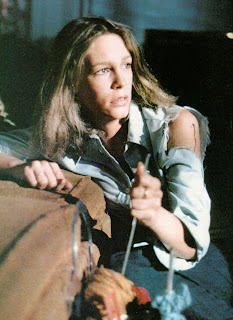
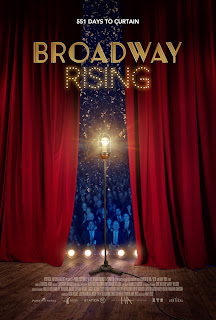


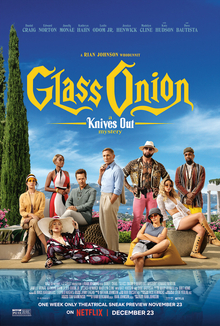


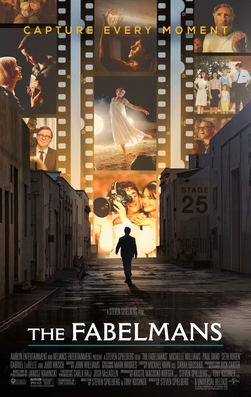



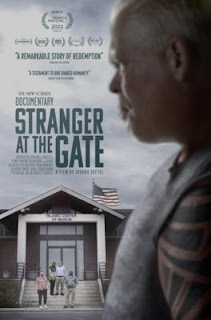






.jpg)










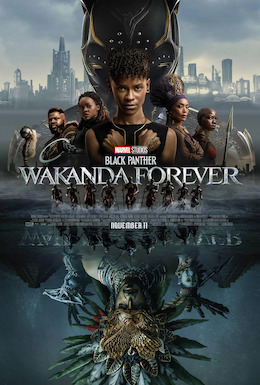



.jpg)


